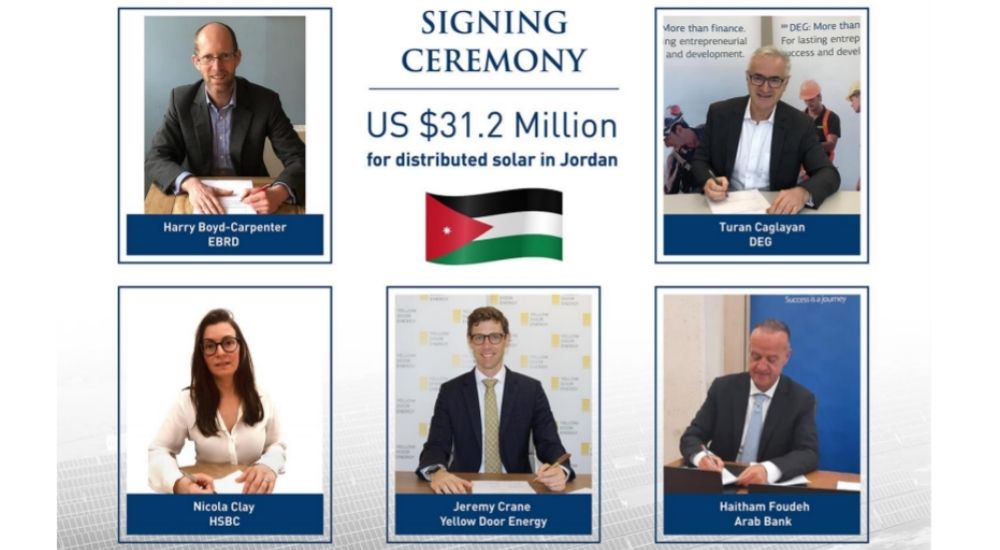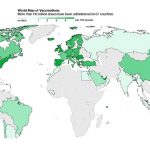Yellow Door Energy powers 5 retailers in Jordan with $30M+ loan for eight solar plants

The European Bank for Reconstruction and Development, EBRD, and DEG are providing Yellow Door Energy, sustainable energy provider for businesses, with $10.6 Million loan in local currency for the development, construction, and operation of a portfolio of eight solar photovoltaic, PV, plants in Jordan.
The EBRD local currency financing is complemented by a loan mobilised by the Bank of up to $5 Million provided by the Global Environment Facility, GEF, a parallel $15.6 Million senior loan in local currency from the DEG, the German development finance institution, and an equity contribution from Yellow Door Energy.
Spain is also providing results-based payments of up to €1.5 million, as well as technical assistance together with the European Union.
The portfolio of plants will supply the entirety of the electricity generated to five private consumers: Umniah, Carrefour supermarkets, Safeway supermarkets and Taj Mall as well as Classic Fashion. In total, 48.3 MWp of renewable energy capacity will be added to Jordan’s power system, generating over 81 GWh of renewable electricity per year during the lifetime of the project. The plants are also expected to reduce CO2 emissions by more than 49,000 tonnes per year.
The project, designed under an innovative structure aggregating the risks inherent to the construction and operating of commercial solar projects, is the largest portfolio of private-to-private renewable projects involving supply directly to the private sector under Jordan’s Wheeling Regulations. These regulations allow customers to establish and lease or own renewable energy plants and, if necessary, connect them to the transmission or distribution system at remote locations in order to generate power for their own consumption.
Lastly, the project has been registered with Verra’s Verified Carbon Standard, VCS, a global voluntary greenhouse gas, GHG, programme and will benefit from support provided by Spain in the form of technical assistance to facilitate the establishment of a digitalised Monitoring, Reporting and Verification, D-MRV, system, and results-based payments to monetise its GHG emission reductions.





